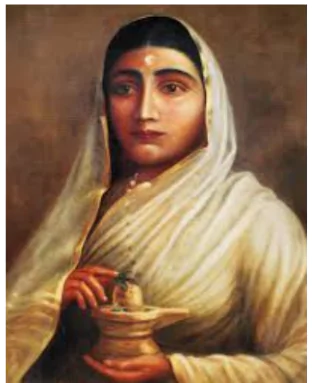Today, we celebrate the 300th birth anniversary of the Maratha queen Ahilya Bai Holkar — a great administrator and visionary with a spiritual inclination.
Ahilya Bai Holkar 300th Birth Anniversary
Today is the 300th birth anniversary of Ahilya Bai Holkar, a great Maratha queen. She was born on May 31, 1725 to a shepherd family in Ahmednagar, Maharashtra. Strived to be recognized as a leader in her own right, beyond being the wife of Khande Rao Holkar.

- Leadership and Governance: Took over as monarch after her husband’s death, breaking patriarchal norms.
- Led her kingdom to 30 years of peace and financial stability.
- Appointed Tukoji Holkar as the commander of her army to ensure effective military leadership.
- Guided by innate generosity and principles in her dealings with subjects.
- Cultural and Religious Contributions: Regularly attended Purana recitals and yagnas to uphold her Hindu faith.
- Resurrected jyotirlingas across the country as a tribute to Lord Shiva.
- Renovated temples in Somnath, Varanasi, Trambak, Gaya, Pushkar, Vrindavan, Nathdwara, Haridwar, Badrinath, Kedarnath, and others.
- Installed idols in secret shrines for protection against attacks and iconoclasm.
Enroll now for UPSC Online Course
- Economic and Social Initiatives: Promoted the production of Maheshwari saris, empowering women and providing steady income for weavers.
- Enhanced revenue collection and supported traditional crafts in Maharashtra.
- Developed Indore, conserved forests and animals, and boosted trade and commerce.
- Inclusivity and Social Harmony: Celebrated inclusivity and promoted social harmony among her subjects. Worked towards mainstreaming Bhil and Gond castes. Legacy and Recognition
- Recognition: Commanded respect from contemporaries and later historians like Jadunath Sarkar, Annie Besant, and John Keay.
- Her contributions to governance, social harmony, and temple renovation are significant.
Conclusion
Ahilya Bai Holkar’s rule exemplifies inclusive policymaking and effective governance. Her legacy is a blueprint for Ram Rajya in today’s era, transcending gender norms and biases.
![]() 31 May 2024
31 May 2024

